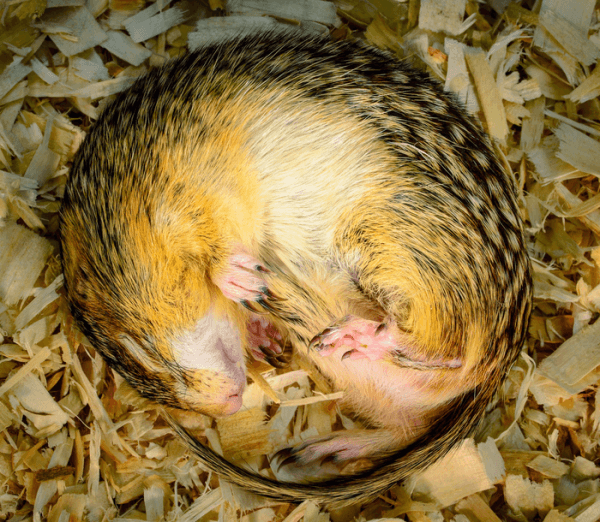To get through a long winter without food, hibernating animals — like the 13-lined ground squirrel — can slow their metabolism by as much as 99 percent, but they still need important nutrients like proteins to maintain muscles while they hibernate. A new study from the University of Wisconsin–Madison shows that hibernating ground squirrels get help from microbes in their guts.
The discovery could help people with muscle-wasting disorders and even astronauts on extended space voyages.
“The longer any animal doesn’t exercise, bones and muscles start to atrophy and lose mass and function,” says Hannah Carey, an emeritus professor in the UW–Madison School of Veterinary Medicine and co-author of the new study, published today (Jan. 27) in the journal Science. “Without any dietary protein coming in, hibernators need another way to get what their muscles need.”
One source of nitrogen, a vital building block for amino acids and proteins, accumulates in the bodies of all animals (including humans) as urea, a component of urine. The researchers knew that urea that moved into the squirrels’ digestive tract could be broken down by some gut microbes, which also need nitrogen for their own proteins. But the researchers wanted to see if some of that urea nitrogen freed up by the microbes was also being incorporated into the squirrels’ bodies.
Read more at University of Wisconsin–Madison
Image: Thirteen-lined ground squirrels curled up for seasonal hibernation can slow their metabolic rates to as little as 1 percent of their waking activity. (Credit: Photo courtesy Rob Streiffer)


